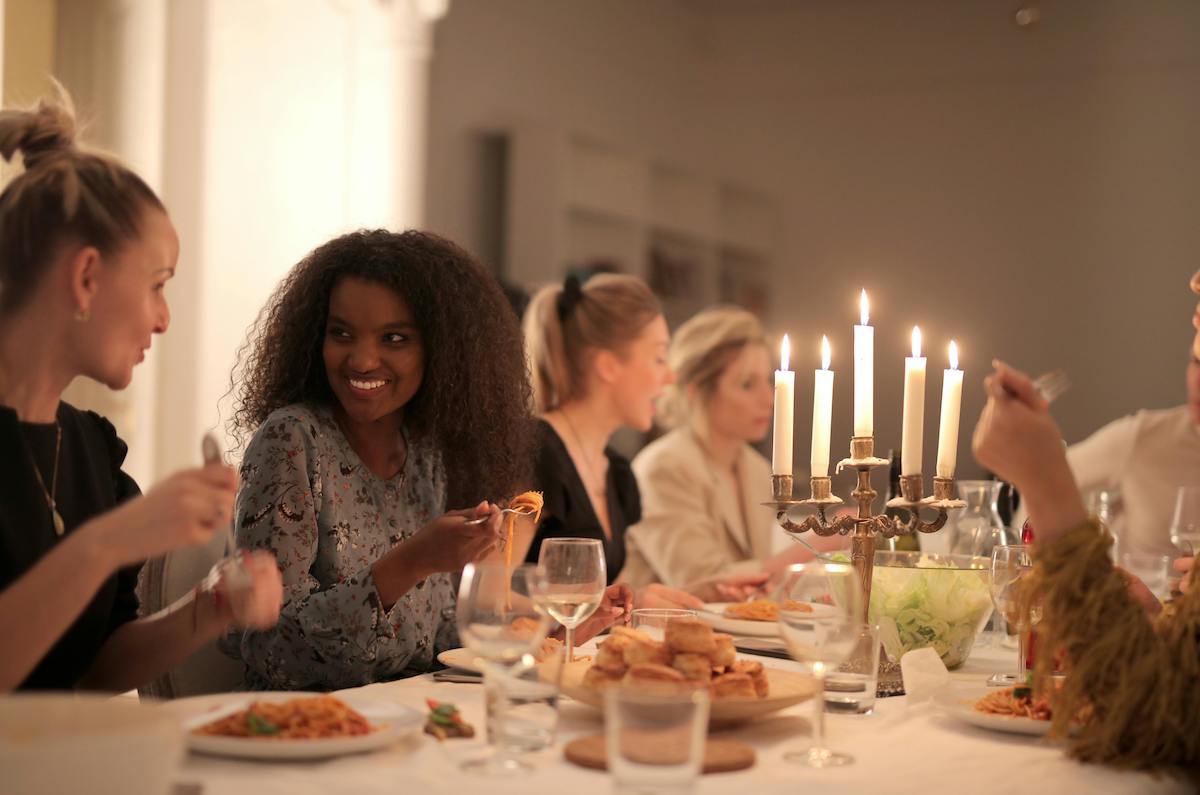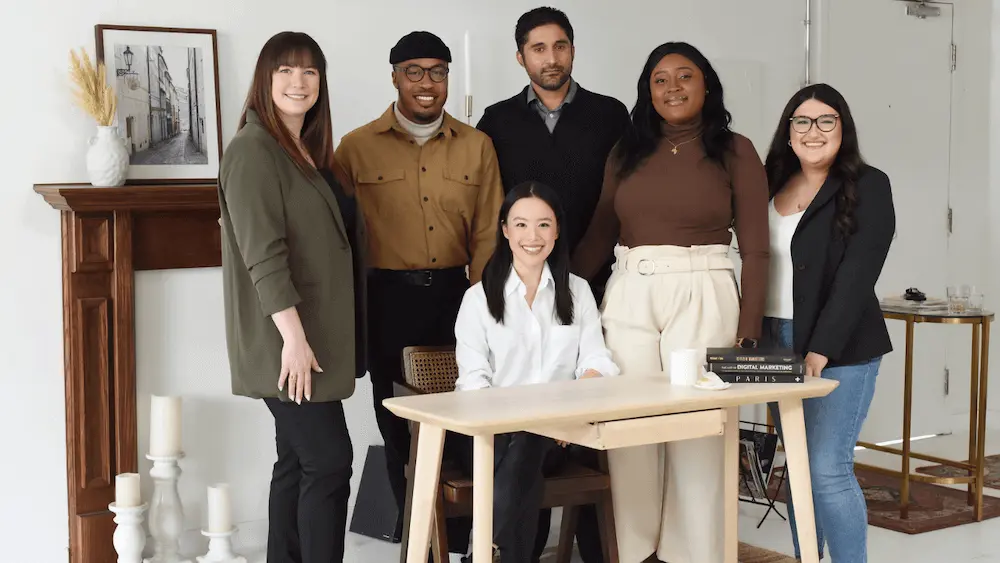I see you. I really do.
You are vigorously scouring your social feeds looking for the newest articles on the coronavirus and COVID-19 while simultaneously ordering overly expensive hand sanitizer on Amazon.
You are considering going to Costco to stock up on toilet paper and you are fearful of being surrounded by your family when they arrive home from work, school or errands.
You may even be nervous to leave your home and go outside.
I feel your panic.
I too am anxious about what this means for my own health and that of my loved ones. Currently, it feels difficult to decipher what I should believe and what is scaring me for no reason. Most of all, I want to be in control of my fear and cope with the stress of this pandemic in a healthy way.
First, it’s important to better understand why we feel panicked in the first place.
Anxiety is our body’s natural response to stress and acts as a built-in safety mechanism that prevents you from harm. When that mechanism is working well, it correctly assesses danger and offers us a safety response, kind of like a smoke alarm sounding when there is an actual fire. When we hear the alarm it triggers us to quickly change our behaviour to stay safe.
For many of us, our internal safety mechanism — a metaphorical smoke alarm — can be overly-sensitive or even faulty from time to time resulting in an inability to correctly assess the situational risk and properly determine the level of threat. Think of it as a defective smoke detector that signals an alarm at the right, and wrong, times. Fire or not, whenever we hear that alarm, we naturally respond with stress.
When it comes to anxiety around COVID-19, for some of us a similar stress response may be happening. While we are rationally aware that we may not be at significant risk, we may feel that we are not in control and therefore our internal panic button or alarm is triggered resulting in physical and emotional distress.
Second, let’s discuss what is helpful.
Each of us can take small steps that, taken together, can make a big impact on managing our anxiety.
- Regular hand washing. Wash those hands! Experts recommend at least 20 seconds of vigorous handwashing with soap and warm water. Just an FYI 20 seconds is as long as the chorus of Lizzo’s Good as Hell.
- Reading trusted news articles. Being careful to verify the source of the information. A lot of misinformation that is being shared on social media is inaccurate which can be further dangerous. For the most trustworthy information refer to the World Health Organization.
- Discussing fears with loved ones or your therapist. Sharing your fears and concerns with trusted loved ones can help to alleviate symptoms of stress and anxiety. As humans, we are wired for connection and sharing our stories and experiences helps us to make sense of them. Friends and loved ones may give us perspective that we don’t necessarily consider ourselves and may help us problem-solve around how to cope with our stress.
- Checking in with your loved ones that are at higher risk (elderly and/or those with chronic medical conditions). We know that some populations are at higher risk than others. If you have a close friend or family member who is elderly or live with a chronic medical condition, checking in with them regularly can help them, and you feel more in control.
- Naming the pandemic for what it is. The term pandemic can drive feelings of anxiety but as Mark Lipstick, Harvard Epidemiologist says, “it’s helpful to call a horse a horse”. In Pandemic, a podcast by Dr. Sunjay Gupta of CNN, Gupta states, “I keep reminding the viewers that still, based on two very large studies, the vast majority of people who get this infection are not going to get sick. They're going to have a mild illness, if any, and they're going to recover. This tends to be very reassuring to people. But I don't want to minimize this. We're dealing with something that is growing and becoming a legitimate pandemic.”
- Practice social distancing. This buzz term simply means keeping people apart from each other, at least 6 feet apart, and avoiding direct human contact with others. What that means in actionable terms is that the notion of community may need to change for the short-term. As Author Max Brooks states in his New York Times Opinion piece, The best way to prevent “community spread” is to spread out the community. That means keeping people apart. No more handshakes, group photos and “free hugs” from those cosplayers at Comic-Con. In fact, it might mean no more Comic-Con for a little while, as well as no trade shows, concerts or any other events that draw a large crowd. Each individual is responsible to take precautions that prevent the spread of the virus, not only for themselves but also to protect those who are at higher risk.
- If you are sick, stay home. Whether you are showing the symptoms of COVID-19 or not, adjust your work, school, and social commitments to avoid having to be in close proximity to others. Call on friends or family members to drop off food or supplies and simply lay low. If you are able to work from home and stay productive it will keep you focused on other things and increase a sense of control. Your employer or professor will understand and hopefully support your decision to stay home.
- Get tested if you are showing symptoms. If you are showing symptoms of COVID-19, it is essential that you get tested. Rather than showing up unannounced at a clinic or hospital, it is best to call your healthcare provider or public health authority and they will be able to guide you on the appropriate location to go to.
Third, let’s tackle what might be unhelpful.
There are actions that will likely add to your anxiety. It’s important to remember that you are not superhuman — none of us are — and that means accepting that we have to keep our knee-jerk reactions in check.
- It is difficult to understand how to not over or under-react. Often in an effort to keep us safe, our mind falls into a pattern of catastrophic thinking. It can be helpful to separate between what is necessarily going to happen from what is possible to happen. It may be possible, but is it certain? Similarly, it can be useful to not make assumptions or get ahead of yourself, instead of making choices one step at a time. Mindfulness activities can be helpful including reading this book by well-known mindfulness expert Jon Kabat-Zinn.
- Overindulging in media consumption. Take a break from social media and news consumption if you feel that you are becoming increasingly worried or anxious. Notice what happens in your body and mind while on the break. If you feel calmer and less overwhelmed it’s a good reminder to take regular planned social media and news consumption breaks throughout your day. If any major updates occur, you’ll hear about them regardless of being plugged in constantly or not.
- Ignoring your needs. When you are feeling particularly anxious, it is essential to pay attention to what you can control. Can you telecommute and work from home instead of heading into the office? Does your medical practitioner offer video appointments? Do you feel unwell and need a sick day? It’s okay to prioritize your needs during this time even if it includes cancelling a trip you were looking forward to. We expect to see a lot of grieving during this time, as people end up having to cancel time with friends and family or major life events due to precautionary measures to control the spread of the virus.
- Ignoring your coping strategies and self-care. Self-care is health care and it’s important to continue the routines that have consistently helped you to remain healthy. Often, these routines can be modified to support recommended infection-control practices. Change your studio practice to an at-home yoga practice. Attend your regular therapy session over video or telephone instead. Take advantage of the meal delivery service you’ve been wanting to try and cook at home. Being creative will be your best strength here.
- Identify your drive to panic buy and where it comes from. This article by CNBC interviewed Sander van der Linden, an assistant professor of social psychology at Cambridge University to determine why people are stocking up on toilet paper and how easily we can influence each other socially when we are stressed. The phenomenon, also known as fear contagion, was described by van der Linden, "when people are stressed their reason is hampered, so they look at what other people are doing. If others are stockpiling it leads you to engage in the same behaviour,” he said. “People see photos of empty shelves and regardless of whether it's rational it sends a signal to them that it's the thing to do. Sometimes there can be a lot of value in social knowledge — from an evolutionary perspective when we don't know how to react to something, we look to others for guidance,” he added. “If you're in the jungle and someone jumps away from a snake you automatically do the same thing. But sometimes that gets highjacked and you're told to do something that's not the right thing to do.”
Fourth, if you feel that you are overwhelmed, please reach out to someone for support.
There is no shame in sharing your feelings, fears and challenges. We are literally all in this together.
- If you are in crisis and in need of support, calling a crisis line can help. Click here for a list of crisis resources. Contrary to popular beliefs about crisis lines, they exist to provide support for a wide range of distress.
- If you are concerned you may have COVID-19, seek medical attention. If you are unwell and worried that you may have contracted the virus, the Government of Canada and Public Health suggests, “if you are ill and must visit a health care professional, call ahead or tell them when you arrive that you have a respiratory illness. You may be asked to wear a mask while waiting for or receiving treatment to prevent the spread of the illness. If you have travelled abroad and you develop fever, cough or difficulty breathing in the next 14 days: isolate yourself within your home as quickly as possible and call your healthcare provider or public health authority. Tell them your symptoms and travel history. Let them know whether you have had direct contact with animals or a sick person, especially if they have had symptoms.
- If you are anxious about this pandemic and its impact on you, speak to a therapist. Our wonderful team of therapists at Shift Collab is available for in-person, phone, and video sessions throughout Ontario. You can also connect with one of our therapists on-demand virtually by using the Maple app.
This post contains affiliate links. This means that we may get a small commission should you buy something through one of the links, at no additional cost to you. Thanks for your support!






































